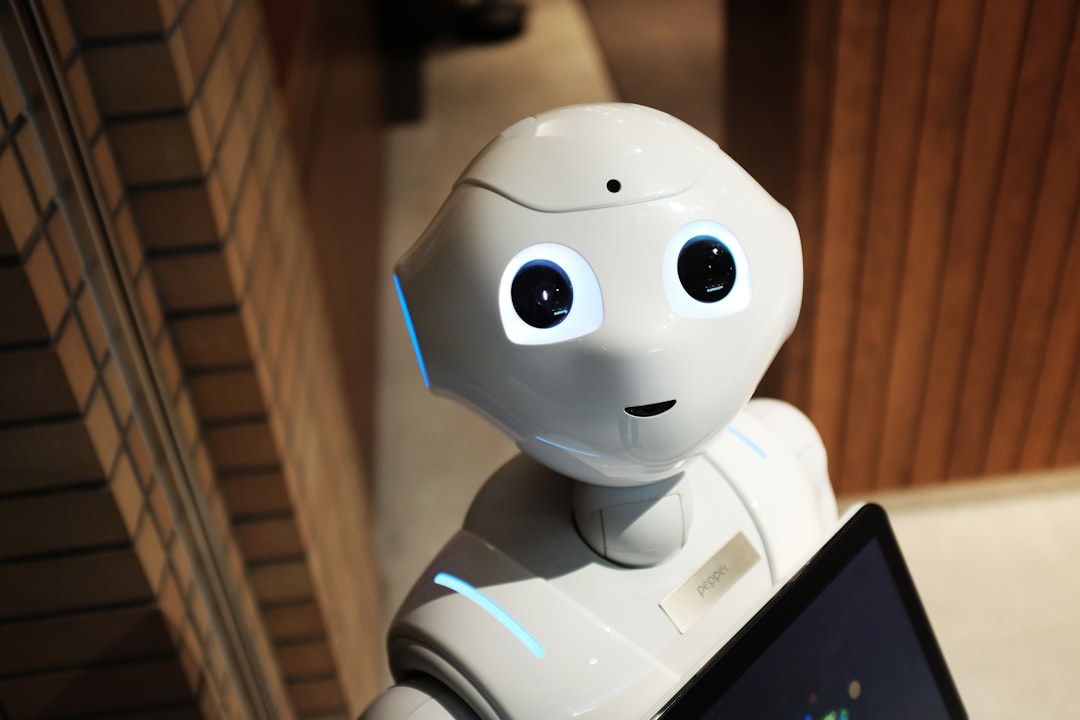Leveraging Generative AI in Everyday Life and Work
October 13th, 2023

Leveraging Generative AI in Everyday Life and Work
Leveraging Generative AI in Everyday Life and Work
Imagine a world where machines understand us, anticipate our needs, and help us make better decisions. This is no longer just science fiction—it's the reality offered by generative AI technologies, including advancements like GPT. These intelligent systems are transforming the way we live and work, making them vital allies in our daily lives. From managing our schedules to streamlining business operations, generative AI is reshaping our interactions with technology. But as we start relying on these systems more, it's also crucial that we address the ethical considerations to ensure responsible use. Dive into this fascinating world of AI companionship and discover how it can elevate your everyday experiences while keeping ethics at its core.
Understanding the role of generative AI
Diving into the world of artificial intelligence (AI), one is likely to encounter the term Generative AI. But what exactly does it mean? In simple terms, generative AI refers to a subset of AI models that are capable of creating new data instances similar to the ones they have been trained on. They can generate anything from images and music to text and even 3D models.
One of the most popular examples of this technology is the Generative Pretrained Transformer (GPT), developed by OpenAI. GPT, and its latest version GPT-3, leverage machine learning techniques to produce human-like text. This powerful tool can write poems, complete sentences, answer questions, and even engage in comprehensive conversations just like humans would do.
The functionality of generative AI extends beyond just creating content—it possesses an array of impressive capabilities. For instance, it can be used to predict future events based on historical data, transform information from one type to another (like converting text to speech), and even assist in designing novel solutions for complex problems. These capabilities make generative AI a promising tool that can increase efficiency, creativity, and productivity in various aspects of life and work. As we delve further into this article, we will explore how generative AI, including technologies like GPT, can act as a reliable companion for humans, revolutionizing our daily tasks and professional activities.
Generative AI as a companion for humans
Improving communication with GPT AI
In the realm of language processing, Generative Pretrained Transformers (GPT) AI has emerged as a game changer. This advanced system can understand and generate human-like text, providing a new dimension to our interactions with technology.
Consider the challenges faced when dealing with multiple languages. From business meetings to international travels, language barriers often impede smooth communication. Enter GPT AI and its real-time translation capabilities. You could be speaking English while your Japanese counterpart hears you in their native tongue, all thanks to this ingenious AI - no interpreter required.
Beyond translations, GPT AI also excels at grasping the context of a conversation, making it a valuable tool for businesses seeking to improve customer service. For instance, chatbots powered by GPT AI can interact with customers naturally, understand their concerns better, and provide more accurate responses. These 'contextual conversations' not only enhance customer interaction but also significantly reduce response time, leading to improved customer satisfaction.
Moreover, from helping children with homework to assisting adults with complex work projects, GPT AI's capability to communicate effectively in various contexts has vast potential. It's like having a knowledgeable companion always ready to assist, making our lives more manageable and efficient.
While we're still in the early stages of fully harnessing the power of GPT AI, these examples give us a glimpse into a future where seamless and effective communication is no longer confined to human-to-human interactions.
Managing our daily tasks can sometimes feel like a Herculean effort. The to-do list grows longer, deadlines loom closer, and it seems like there just aren't enough hours in the day. Enter Generative AI - an innovative solution that has emerged as a game-changer for task management.
Generative AI is designed to automate routine chores, lending us more time to focus on what truly matters. With AI task management systems, you can easily delegate responsibilities such as setting reminders, scheduling meetings, and organizing your calendar. These smart systems can understand each task's context and priority, offering an efficient way to manage your time. For instance, Google's AI-powered assistant, Google Duplex, can book appointments and make reservations for you, thereby freeing up substantial time in your day.
But Generative AI isn't just about managing personal schedules. It also plays a role in streamlining professional tasks. Take the example of project management, where AI can handle administrative duties, track progress, and even identify bottlenecks that might delay completion. Automated schedules, managed by AI, ensure steady workflow and eliminate human errors that often lead to inefficiencies.
Moreover, Generative AI enhances efficiency by learning from user behavior over time. This means that the more you use these systems, the better they get at understanding your work style and preferences - ultimately making your life simpler and more productive. In a world where time is the most valuable resource, Generative AI ensures none of it goes to waste.
As we continue to embrace the digital age, Generative AI becomes not just a tool, but a trusted companion, intricately woven into the fabric of our everyday lives. While it may seem like a futuristic concept, the reality is that many of us are already sharing our tasks with AI – perhaps without even realizing it. From Siri setting our morning alarms to Alexa creating our shopping lists, AI has quietly permeated our routines, making our lives more efficient with every interaction.
Implementing AI in professional scenarios
Facilitating decision making with AI
In the dynamic world of business, making well-informed decisions quickly is crucial. This is where artificial intelligence (AI) enters the scene, introducing methodologies such as decision trees and predictive models to facilitate faster and more accurate choices.
A decision tree, an AI-powered tool, serves as a graphical depiction of potential outcomes based on various variables. For instance, if you're running an e-commerce website, a decision tree might consider factors like customer purchase history, browsing patterns, and social media engagement to predict whether they'll make a purchase or not. By laying out all possible scenarios, decision trees enable stakeholders to strategically plan their next move, minimizing risks and maximizing opportunities.
Moreover, predictive models take decision-making a step further. Harnessing historical data sets, predictive models anticipate future trends and behaviors. Let's imagine you're managing a supply chain; AI can analyze previous periods of high demand, inventory levels, and supplier delivery times to accurately forecast future needs. Consequently, this allows businesses to better prepare for demand spikes, streamline inventory management, and improve customer satisfaction.
At its core, AI provides robust decision support by processing vast amounts of data far beyond human capability. It sifts through complex data sets, identifies patterns and insights that would be otherwise missed, and offers recommendations based on these findings. This 24/7 assistance empowers individuals and organizations to make smarter, data-driven decisions, boosting efficiency and productivity.
Incorporating AI into decision-making processes is rapidly becoming a necessity rather than a luxury for contemporary businesses. Its ability to turn data into actionable insights, foresee trends, and provide strategic guidance makes it an invaluable ally in navigating today's competitive business landscape.
Streamlining workflow with AI automation
In a bustling professional environment, time is the most valuable resource and efficient management of tasks becomes paramount. This is where automation powered by artificial intelligence (AI) comes into play as an incredibly useful tool, streamlining workflows and enhancing productivity.
To start with, task automation has been revolutionized by AI. Traditionally, mundane and repetitive tasks drained crucial time and resources. However, AI can automate these tasks, freeing up employee time for more strategic, critical thinking roles. For example, AI can handle scheduling meetings, sorting emails, or managing data entry tasks, reducing the burden on human employees.
Secondly, AI plays a pivotal role in project management. AI algorithms can sift through vast amounts of data, helping to map out trends, predict outcomes, and provide insights that might be overlooked by humans. Advanced machine learning models can even predict potential project roadblocks or bottlenecks, providing early warnings and enabling proactive problem-solving. Imagine an AI system that can identify the potential for project delay based on current progress and automatically suggest adjustments to keep everything on track!
Finally, AI can significantly enhance time management. AI-powered tools like virtual assistants can help manage schedules, set reminders for tasks, and even optimize your day-to-day workflow based on your habits and preferences. In essence, it's like having a personal assistant that knows you better than anyone else and uses that knowledge to ensure your day runs smoothly.
In conclusion, from automating mundane tasks to predicting project outcomes and improving time management, AI offers immense potential to streamline workflow and enhance productivity. The key lies in understanding how to harness this power effectively and ethically.
Ensuring ethical use of generative AI
As we continue to integrate generative AI into our daily lives, the question of ethical considerations becomes paramount. It's crucial to understand and address the AI ethics involved in using such technology. Be it for personal use or professional settings, responsible AI use should be a top priority.
Data privacy is a significant concern in the field of AI. With generative AI being capable of processing vast amounts of data and making predictions based on these, protecting sensitive data becomes a challenge. For instance, if we're using AI for personalized recommendations, it means the AI has access to our preferences, habits, and more. Therefore, strict data privacy measures need to be implemented. This could involve anonymizing data before inputting it into the AI system or applying stringent access controls on AI systems.
Moreover, responsible AI use goes beyond data privacy. It also includes ensuring that the AI system isn't biased, doesn't discriminate, and is transparent in its operations. Many organizations today are working towards creating guidelines for developing ethical AI systems. For example, Google's AI principles include crucial points like respecting privacy, avoiding unjust impact, and being accountable in their AI development processes.
Furthermore, understanding and addressing ethical implications is not just the responsibility of developers but all users. Being aware of the potential misuse and the ethical boundaries can help us ensure the effective and safe utilization of this powerful technology. As generative AI continues to advance and permeate various aspects of our lives, it's up to us to navigate this digital landscape responsibly and ethically. Ultimately, the fusion of generative AI into our lives carries incredible potential. This technology can simplify everyday tasks, enhance our communication, and streamline professional work processes. However, it's crucial to ensure that its deployment is done responsibly, with a keen focus on ethics and data privacy. The future promises even more innovative applications for AI, transforming how we interact with the world. Armed with this knowledge, we can look forward to an era where AI is no longer solely the domain of science fiction but a reliable companion in our daily life and work. Embracing this change today can lead us towards a more efficient and productive tomorrow.
Other articles
September 25th, 2023
Step-by-Step Guide: How to Use GPT-4 for Article Rewriting
Includes crafting effective prompts and examples. read more...
October 28th, 2023
Exploring the Structure and Functionality of GPT and LLAMA
age models - Generative Pre-training Transformer (GPT) and LAnguage Model Analysis (LLAMA). Understand their functionality, operation and role in natural language understanding tasks. read more...
August 4th, 2023
Secret Project from Stability AI. Stable Swarm Install Guide.
er experience for Stable Diffusion. source read more...





